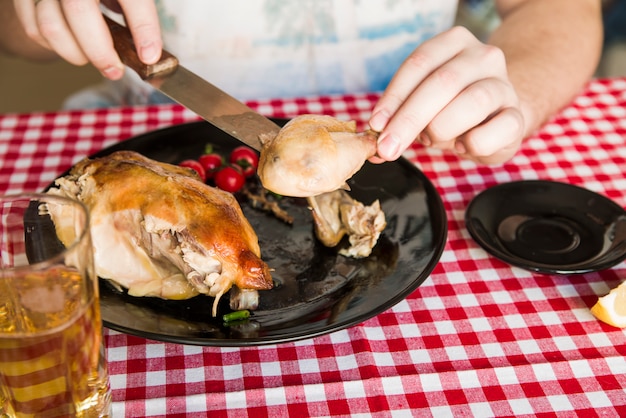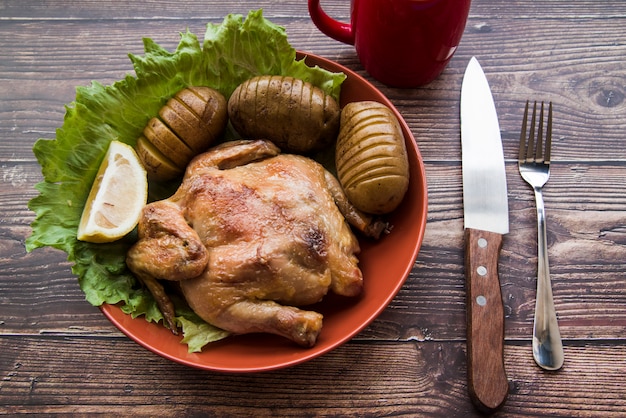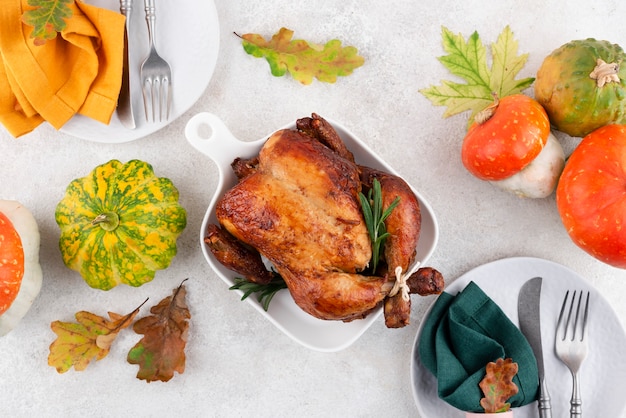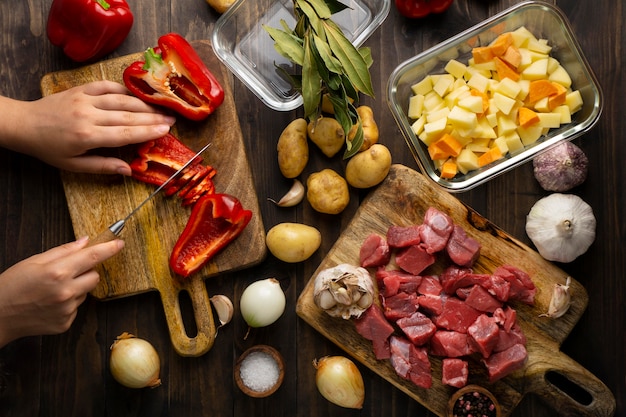(Part 1) Gear Up: The Essential Tools for Success

First things first, you need the right gear. Imagine trying to fish without a rod and reel! Here's what you need to be prepared for a successful wild turkey hunt:
Choosing the Right Shotgun
For turkey hunting, a shotgun is the go-to weapon. You want a 12-gauge with a tight choke, either modified or full choke. This creates a focused pattern of shot, which is crucial for a clean kill. Some hunters even opt for a specialized turkey shotgun with a longer barrel for greater accuracy. Remember, a clean kill is a responsible kill.
Mastering the Art of the Turkey Call
The turkey call is your secret weapon. You've got to be able to talk like a hen! There are many types, like box calls, slate calls, and mouth calls. I personally love the box call because it's versatile and easy to learn. Practice using your call to imitate the hens' clucks, yelps, and purrs. The more you practice, the better you'll get at sounding like the real deal.
Blending In: Camouflage Gear
Wild turkeys are incredibly observant, so blending in is essential. Wear head-to-toe camouflage clothing, including a hat and gloves. You want to be as invisible as possible to those sharp turkey eyes. Staying quiet is just as important as staying hidden.
Essential Accessories for the Hunt
Here's a list of additional gear you'll need to complete your hunting setup:
- Hunting knife: For field dressing the bird after the hunt.
- Game bag: For carrying your turkey back to camp or home.
- Binoculars: To spot turkeys from a distance, especially those shy birds hiding in the undergrowth.
- Water bottle: Staying hydrated is crucial, especially during the warmer months.
- Snacks: You'll need energy for the hunt, and those wild turkeys are tough to track!
(Part 2) Finding the Perfect Spot: Choosing Your Hunting Location

Where you hunt is vital. Knowing your local turkey population and their preferred habitats is key. Here's how to find the best places to stalk those wild birds:
Understanding Turkey Habitat
Turkeys love forested areas with open clearings and fields. Look for mature trees, a variety of vegetation, and ample food sources. Acorns, berries, and insects are their favorites. These areas offer the best chances of finding a flock.
Scouting for Signs
Before the hunt, scout the area for signs of turkey activity. Look for droppings, tracks, and scratch marks on the ground. You'll also want to listen for gobbles, especially during the spring breeding season. The sound of a gobble is music to a turkey hunter's ears!
Choosing the Ideal Hunting Spot
Once you've found a promising location, choose a spot that offers good visibility and cover. You want to be able to see the turkeys while staying hidden. Also, consider the wind direction. You want to be downwind so the turkeys can't smell you. A little bit of wind can make all the difference in your hunting success.
(Part 3) Outsmarting the Wild Turkey: Hunting Strategies

Now you're ready to hunt, but it's not just about charging into the woods with a shotgun. You need a strategy. These strategies have worked well for me over the years:
The Early Bird Gets the Turkey: Early Morning Calls
Wild turkeys are most active in the early morning. Start your hunt before sunrise. They're eager to feed and mate, making them more responsive to calls. I typically start calling around 30 minutes before sunrise. The first gobbles of the day are always a thrill!
Understanding Turkey Behavior: They're Smart Birds
Wild turkeys are incredibly smart birds with excellent hearing and eyesight. They're naturally cautious, so you need to be patient and move slowly. Avoid sudden movements. Be aware of your surroundings and use every bit of your hunting instincts.
Strategic Positioning: Getting Into the Right Place
Position yourself in a way that offers a good view of the area while allowing you to call without spooking the birds. Remember, you want to be downwind so the turkeys can't smell you. Use natural cover, like trees and bushes, to your advantage.
Using Decoys: Tricking the Birds into Thinking You're a Hen
Decoys can be incredibly effective for attracting turkeys. Place them in a natural-looking position, making sure they are visible to the birds. Some hunters use multiple decoys, including a hen and a jake (young male), to create a more convincing scene. Decoys can be your secret weapon to lure those wary birds into your sights.
(Part 4) The Moment of Truth: Bringing Home the Bird
You've finally got a turkey in your sights. Here's what to do:
Aim Carefully: Taking a Clean Shot
Take a deep breath and aim carefully. It's essential to aim for the head or neck for a clean and humane kill. Make sure you have a clear path to the target and that your shot won't endanger anyone or anything else.
Shot Placement: Maximizing Efficiency
A shot to the head or neck is the most efficient way to bring down a turkey. It's the most humane way to end their life. A shot to the body can sometimes be messy and may not be lethal immediately. Responsible hunters strive for a clean, ethical kill.
Field Dressing the Bird: Preparing for Storage and Cooking
After the hunt, you need to field dress the bird. This involves removing the internal organs and preparing the turkey for transport and storage. You'll need your hunting knife for this. It's a crucial step in ensuring the meat stays fresh and palatable.
(Part 5) Turkey Meat: A Culinary Delight
You've got your bird, and now it's time for the delicious part - cooking! Wild turkey meat is truly a treat with a rich flavor that supermarket chicken can't match. Here's how to prepare a meal you'll savor:
Cooking Methods: Discovering Your Favorite Way to Prepare Wild Turkey
Wild turkey meat can be cooked in various ways. Roasting is a classic, but you can also grill, fry, or bake it. It's fantastic in soups, stews, and casseroles. The best method depends on your preferences and what you want to achieve.
Preparing the Turkey: From Raw Meat to a Culinary Masterpiece
Before cooking your turkey, you need to prepare it properly. This includes removing any remaining feathers, cleaning the cavity, and seasoning it to taste. Use your hunting knife to remove any remaining feathers and ensure the meat is clean. Salt, pepper, and herbs are classic seasonings for turkey, but feel free to experiment!
cooking times: Knowing When Your Turkey is Ready
Cooking times will vary depending on the size and cut of the turkey. A whole wild turkey typically takes around 2-3 hours to roast at 350°F (175°C). Smaller cuts, like breasts or legs, will cook much faster. Use a meat thermometer to ensure the turkey reaches an internal temperature of 165°F (74°C) for safe consumption.
(Part 6) Delicious Recipes: Sharing the Bounty of the Hunt
Here are some of my favorite recipes for wild turkey. They're all delicious and easy to make. Get ready to impress your family and friends with your culinary skills!
Classic Roasted Wild Turkey: A Time-Honored Tradition
This is the quintessential wild turkey dish. A simple roast turkey seasoned with salt, pepper, and herbs is always a winner.
Ingredients
- 1 wild turkey, cleaned and seasoned
- 2 tablespoons olive oil
- 1 teaspoon salt
- 1/2 teaspoon black pepper
- 1/2 teaspoon dried thyme
- 1/4 teaspoon dried rosemary
Instructions
1. Preheat oven to 350°F (175°C).2. Rub the turkey with olive oil, salt, pepper, thyme, and rosemary.3. Place the turkey in a roasting pan and roast for 2-3 hours, or until a meat thermometer inserted into the thickest part of the thigh registers 165°F (74°C).4. Let the turkey rest for 15 minutes before carving.
Wild Turkey and Wild Mushroom Stew: A Hearty and Flavorful Meal
This stew is packed with flavor and perfect for a chilly evening. The combination of wild turkey and wild mushrooms is a culinary dream team!
Ingredients
- 1 pound wild turkey breast, diced
- 1 tablespoon olive oil
- 1 onion, chopped
- 2 carrots, chopped
- 2 celery stalks, chopped
- 1 cup wild mushrooms, chopped
- 4 cups chicken broth
- 1/2 teaspoon salt
- 1/4 teaspoon black pepper
- 1 tablespoon chopped fresh parsley
Instructions
1. Heat the olive oil in a large pot over medium heat.2. Add the turkey and cook until browned on all sides.3. Add the onion, carrots, celery, and mushrooms to the pot and cook until softened, about 5 minutes.4. Stir in the chicken broth, salt, and pepper.5. Bring the stew to a boil, then reduce heat and simmer for 30 minutes, or until the turkey is cooked through.6. Stir in the parsley before serving.
Smoked Wild Turkey Breast: A Taste of the Outdoors
Smoking your turkey brings out a delicious smoky flavor. It's a fantastic way to prepare the meat for sandwiches, salads, or appetizers.
Ingredients
- 1 wild turkey breast
- 1/2 cup dry rub (your choice)
- Wood chips for smoking (e.g., hickory, apple, cherry)
Instructions
1. Preheat your smoker to 225°F (107°C).2. Rub the turkey breast with your chosen dry rub. Try a combination of spices like paprika, garlic powder, onion powder, and black pepper for a flavorful rub.3. Soak the wood chips in water for 30 minutes.4. Place the turkey breast in the smoker and smoke for 3-4 hours, or until the internal temperature reaches 165°F (74°C).5. Remove the turkey from the smoker and let it rest for 15 minutes before slicing.
(Part 7) Safety and Ethics: Hunting with Respect
Now, let's talk about something vital: safety and ethics. Hunting is a privilege, and we must treat it with respect. Here's how to do it right:
Safety First: Always Be Aware of Your Surroundings
Always treat your firearm with respect and follow all safety rules. Keep your finger off the trigger until you are ready to shoot. Be aware of your surroundings, and make sure you have a safe backstop. Never point your gun at anything you don't intend to shoot. Always practice safe handling of firearms, even when not hunting.
Ethical Hunting Practices: Hunting with Integrity
Hunt only in legal areas and during designated seasons. Obtain the necessary permits and licenses. Follow all hunting regulations and guidelines. Remember, you are responsible for your actions. Be respectful of the environment and wildlife.
Conservation and Sustainability: Protecting the Future of Wild Turkeys
It's essential to hunt responsibly and sustainably. Respect the limits on bag sizes and hunting seasons. We must ensure that wild turkey populations remain healthy for future generations. Responsible hunting is a key part of wildlife conservation.
(Part 8) FAQs: Addressing Your Questions
Here are some common questions people have about wild turkey hunting and cooking:
1. When is the best time to hunt wild turkey?
The best time to hunt wild turkey is during the spring breeding season, typically from March to May, depending on your location. This is when the turkeys are most active and vocal, making them easier to locate and hunt.
2. How much wild turkey meat can I expect from one bird?
The amount of meat you get from a wild turkey will vary depending on the size and age of the bird. A mature tom (male turkey) can weigh up to 20 pounds, while a hen can weigh around 10 pounds. You can expect to get about 5-7 pounds of edible meat from a mature turkey.
3. How do I store wild turkey meat?
Store wild turkey meat in the refrigerator for 3-5 days or in the freezer for 3-6 months. Make sure to wrap it tightly in plastic wrap or freezer paper to prevent freezer burn.
4. What are some signs of a spoiled wild turkey?
Spoiled wild turkey will have a sour or rancid smell, a slimy texture, and a dull, grayish color. It's best to discard any meat that shows these signs. Don't take any chances with food safety.
5. Can I eat wild turkey if I'm allergic to chicken?
If you're allergic to chicken, you're likely allergic to turkey too, as they are both birds. It's best to avoid eating wild turkey if you have a chicken allergy. Always consult with a medical professional to ensure your safety.
(Part 9) Conclusion: The Thrill of the Hunt and the Joy of the Feast
So, there you have it - a complete guide to wild turkey hunting and cooking. From choosing the right gear to preparing the delicious meat, I hope this guide has been helpful. Remember to hunt responsibly and ethically, and always practice safety first.
Now, go out there and enjoy the thrill of the hunt. And when you bring home your prize, get ready to enjoy a delicious wild turkey feast. Happy hunting, and happy cooking!
Everyone is watching

Perfect Rice Every Time: The Ultimate Guide to Cooking Rice
Cooking TipsAs a self-proclaimed foodie, I've always been a bit obsessed with rice. It's the foundation of countless cuisi...

Ultimate Guide to Cooking the Perfect Thanksgiving Turkey
Cooking TipsThanksgiving. Just the word conjures up images of overflowing tables laden with delicious food, the scent of r...

The Ultimate Guide to Cooking Asparagus: Tips, Techniques, and Recipes
Cooking TipsAsparagus. The mere mention of this spring delicacy conjures up images of vibrant green spears, crisp and burs...

Can You Cook Spaghetti with Gasoline? (The Shocking Truth)
Cooking TipsWe've all seen those crazy internet trends. You know, the ones that make you wonder, "Did someone actually try...

Chorizo and Eggs Recipe: The Ultimate Guide
Cooking TipsRight, let’s talk about chorizo and eggs. You know, that classic Spanish dish that's always a winner. It's th...
